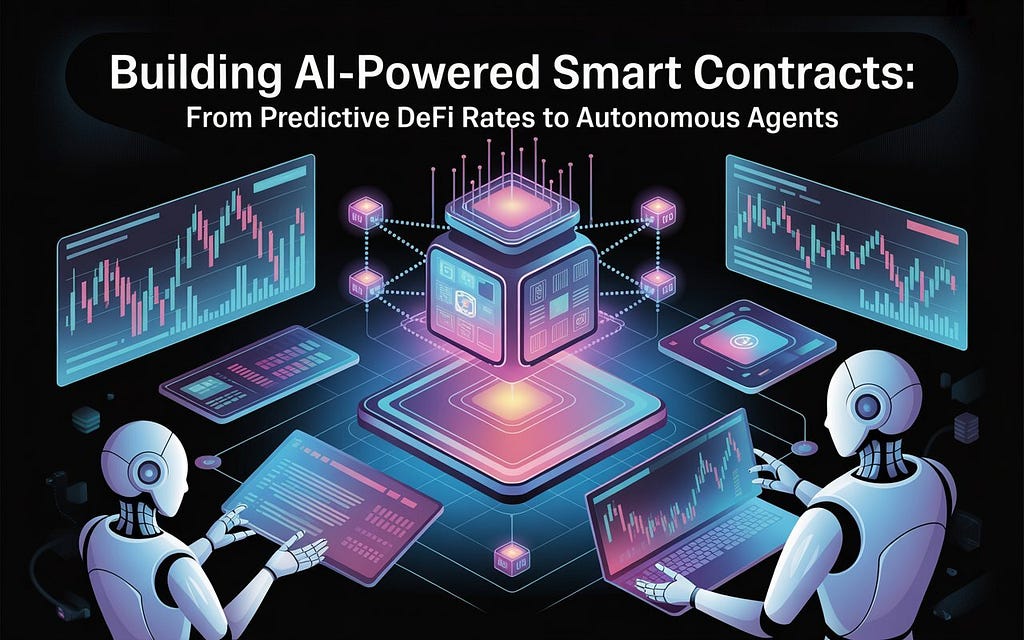
Smart contracts have become the foundation of decentralized applications and the broader blockchain economy. They introduce a model where rule-based execution removes intermediaries, making transactions faster, cost-effective, and transparent. With the growing complexity of decentralized finance (DeFi), NFT ecosystems, and digital identity systems, the integration of artificial intelligence (AI) into smart contracts is creating a new class of dynamic, responsive, and autonomous digital agreements.
Businesses exploring decentralized applications are no longer just thinking about static contracts that execute a fixed set of instructions. They want intelligent contracts capable of analyzing data, adjusting conditions, and interacting with external systems in real-time. This is where AI‑powered smart contracts are making a significant impact. Companies offering Smart Contract Audit Services and development expertise are now engaging in projects where intelligence is embedded into the very logic of decentralized systems, making them adaptive and business-centric.
This blog explores the concept of AI‑powered smart contracts, how they work, practical examples such as predictive DeFi rates, autonomous agent workflows, and why they matter to startups, enterprises, and financial institutions. It also lays out the development process, challenges, and the role expertise plays in making these solutions reliable.
Traditional smart contracts are written in languages such as Solidity (Ethereum) or Rust (Solana), with the logic defined at the creation stage. Once deployed, these contracts only operate within the coded parameters and blockchain environment. They rely on oracles or off-chain data feeds to fetch updates but act as static executors of conditions.
AI‑powered smart contracts extend this approach by integrating artificial intelligence and machine learning models into the decision-making logic. Instead of waiting for fixed inputs, these contracts can process real-time data, analyze patterns, and even predict future outcomes. For example:
In essence, AI adds a layer of cognitive flexibility to the deterministic nature of smart contracts.
For companies evaluating blockchain strategies, AI‑embedded smart contracts are relevant because they introduce automation that goes beyond execution — they introduce adaptability. Businesses that rely on evolving market data, customer profiles, and external conditions no longer need manual updates or human oversight for every change.
Key benefits include:
For forward-looking organizations, these benefits mean smarter products in DeFi, tokenized assets, digital identity management, and cross-industrial applications.
The combination of blockchain and AI requires a modular system. Businesses developing AI‑powered smart contracts must combine these elements effectively:
DeFi protocols rely heavily on interest rate models that determine borrowing costs, lending returns, and risk assessment. Traditionally, these rates are defined by static formulas or governance voting.
AI‑powered smart contracts open a more advanced mechanism — predictive DeFi rates. Here’s how:
Businesses in the financial technology sector can integrate such models to introduce innovative DeFi products that differentiate them from existing services.
One of the most exciting implications of combining AI and blockchain is the creation of autonomous agents — self-governing units capable of executing complex sequences of transactions, negotiations, or verifications.
Consider an autonomous agent in logistics:
Such autonomous contracts extend the scope of blockchain beyond financial applications to global industries like real estate, healthcare, and trade.
For businesses working with Smart Contract Development companies, the process can be broken into key stages:
Clear understanding of what the contract must achieve. Examples: predictive interest rates, fraud detection, supply chain monitoring.
Identifying clean and relevant datasets, essential for training AI models that will be linked to contracts.
Selecting AI methods such as regression, reinforcement learning, or neural networks depending on requirements.
Deploying models or their outputs through oracles and APIs. The contract must remain secure, auditable, and efficient even with AI logic.
Before mainnet deployment, contracts undergo testing, simulations, and a detailed Smart Contract Audit, which includes not only vulnerabilities in on‑chain code but also in data pipelines and AI model integrity.
Live contract execution across blockchain networks with monitoring tools to validate performance.
Businesses planning AI‑powered contract adoption must address these challenges:
Addressing these concerns early smooths the adoption journey.
These industries are finding tangible value in combining AI’s predictive capabilities with blockchain’s immutability.
For organizations, building AI‑powered smart contracts from scratch is often impractical. It requires blockchain architects, AI engineers, auditors, and integration experts. This is why specialized Smart Contract Development companies play a key role. They not only deliver secure smart contracts but also integrate AI features and conduct ongoing audits to maintain efficiency and compliance.
AI‑powered smart contracts are taking decentralized applications to new levels of intelligence and functionality. From predictive DeFi rates to self-operating agents, these contracts provide a glimpse of how automation and decision-making can coexist on the blockchain.
For businesses and financial institutions, this technology unlocks ways to build more adaptive, intelligent, and secure decentralized solutions. However, success in this field depends on expertise, reliable audits, and robust development methodologies.
If your business is ready to explore AI‑powered Smart Contracts — whether for DeFi, enterprise automation, or digital identity — the right development partner makes all the difference.
Take the next step in building intelligent blockchain solutions. Partner with Codezeros for Smart Contract Development and gain access to secure, business-ready AI‑powered contracts that align with your goals.
Building AI‑Powered Smart Contracts: From Predictive DeFi Rates to Autonomous Agents was originally published in Coinmonks on Medium, where people are continuing the conversation by highlighting and responding to this story.
Also read: Ripple (XRP) Price Predictions for This Week